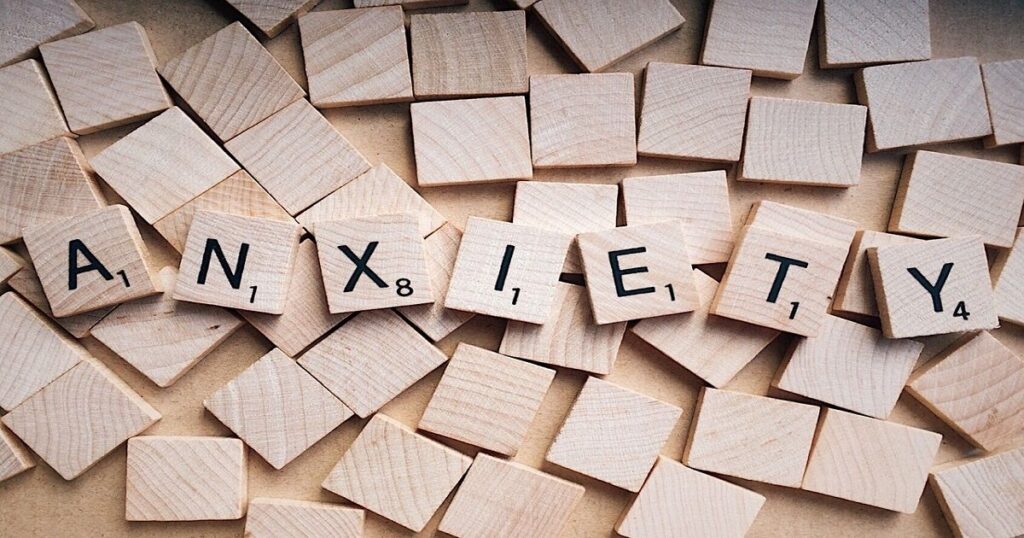You might be familiar with this scenario: You’re at a Zoom meeting giving a presentation to your boss and co-workers. Then, while you are talking and in front of everyone else, a co-worker cuts you off to correct your pronunciation of a tricky word.
It’s already midnight and the presentation was 14 hours ago. Your boss commended you for your excellent work. Some of your co-workers also expressed admiration for your presentation. Yet, you find yourself dwelling on the one mistake you made — the mispronounced word.
Your brain seems to latch on to that single negative experience, completely dismissing the positive aspects of your day; it overshadows the compliments you received and even the fact that your overall workweek was successful.
Turns out, you are not alone: this is human nature. More precisely, in psychology, this tendency is known as negativity bias. Instead of seeing the positive aspects of things — including our daily experiences — we tend to focus more on the negatives.
What is negativity bias?
Negativity bias, by definition, is a cognitive bias whereby we notice and fixate on negative events more than positive ones.
For example, it may influence us in the following ways:
- You recall unpleasant memories easier than pleasant ones.
- You are more likely to click and read negative news.
- You remember insults more easily than compliments.
- You are more likely to believe negative information.
- You react stronger to negative events in your life.
How does negativity bias influence our decision-making?
Our brains embrace negative information, which “has stronger effects on attention, perception, memory, physiology, affect, behavior, motivation, and decision-making than does equally extreme and arousing positive information.” (Norris, 2021)
A single negative experience can direct the entire course of your emotional state, and thus highly affect your decision-making. Here are some examples:
- One lie from your best friend prompted you to start doubting everything he or she says.
- After one bad customer service experience, you decided to never dine again in your favorite restaurant.
- Due to receiving criticism on a couple of occasions, you decided to delete your social media account.
- A painful dental procedure made you stop going to the dentist entirely.
Why does negativity bias happen?
So, why are we inclined towards the bad stuff? Where does the tendency come from?
As with other biases, negativity bias is a result of evolution. One major factor is that our ancestors had to pay closer attention to threats and dangers, rather than positive opportunities, around them to survive.
As an example, consider one of our ancestors, some 50,000 years ago, preparing to go outside of the cave to find food. Soon after stepping out of the safety, he hears an uninviting sound — a loud crack of a branch. Although it could be something harmless, there’s a chance that it’s a large, deadly predator. As a result, he forgoes the day’s hunting altogether despite his hunger, thus increasing his chances of survival.
As such, early humans used negative experiences and memories as tools to help them avoid threats to their lives. “Theoretically, the negativity bias provides an evolutionary advantage, as it is more critical for survival to avoid a harmful stimulus than to pursue a potentially helpful one.” (Norris, 2021)
Anxiety as a result of negativity bias

A propensity towards negativity causes various types of anxiety, which, in turn, clouds our judgment and prevents us from pursuing what’s good for us.
Anxiety, as a result of negativity bias, involves:
- Seeing people and interactions with pessimism.
- Physical manifestations of stress, such as headache and stomach problems.
- Overthinking things.
- Magnified worries.
- Obsessing over “what ifs.”
These types of functions are a means to prepare us for possible threats and problems today, as they did back in our early days; sure, today there is no longer a threat of a sabertooth attacking us, but we experience many personal issues with relationships, health, finances, security, and our self-esteem.
In today’s world, this can cause us additional problems. For one, when you are riddled with anxiety, it can be very difficult to tell the difference between an actual threat and an imagined threat. Also, you may become overly risk-averse; if you see dangers as larger than they really are, you end up being too cautious.
How to overcome negativity bias?
Even though our brains are hardwired towards negativity, there are things we can do to reduce its grip on us. The goal is to not let it cripple your ability to be happy and healthy, as well as to bounce back quickly after a misfortunate experience.
Consider applying some of the following approaches the next time you catch yourself spiraling into defeating thoughts.
Laugh off the small mistakes
Humor helps. When you made a fool of yourself in a presentation, or in public, try and recall the memory with humor. Turning it into a funny anecdote will lessen the bad feelings.
Learn from the big mistakes
Sure, it was painful. But if it didn’t happen, would you have gained a lesson?
Remember the good parts
When you are negatively affected by a situation or a person, think and list the positive aspects before you throw in the towel. Occasionally, you may be surprised that the good actually outweighs the bad.
Meditate
When the anxiety is overwhelming, take a break and meditate. This calms the mind and helps you let go of things you cannot control.
Additional reading (about negativity bias):
- Norris, C. (2021) “The Negativity Bias Revisited: Evidence From Neuroscience Measures And An Individual Differences Approach“
- Corns, J. (2018) “Rethinking the Negativity Bias“
- Negativity bias’ in risk for depression and anxiety: Brain–body fear circuitry correlates, 5-HTT-LPR and early life stress — Science Direct
- How to Overcome Your Brain’s Fixation on Bad Things — Greater Good


